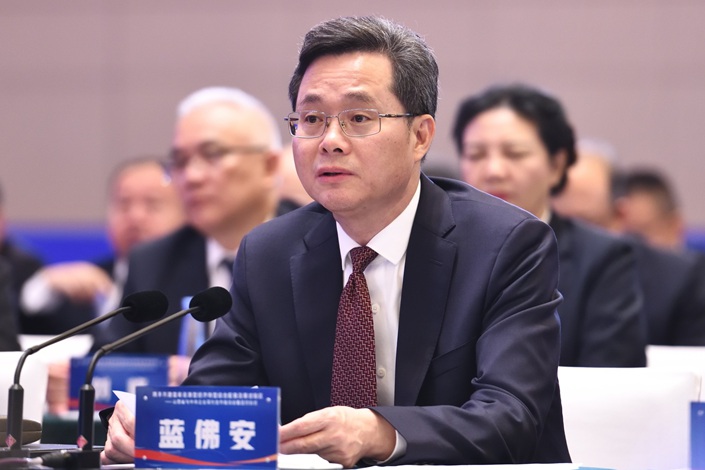China Appoints Lan Foan as New Finance Minister Amid Stimulus Push
In a significant move aimed at bolstering China’s economic revival efforts, Lan Foan, a seasoned technocrat, has been appointed as the new Finance Minister, replacing Liu Kun, who held the position since 2018. This appointment, while somewhat unconventional due to Lan’s limited central government experience, comes as China intensifies its fiscal stimulus initiatives. The Chinese government is striving to breathe new life into its economy, drawing from a familiar playbook that relies on state spending and debt as primary drivers. However, this approach tends to lack the comprehensive structural reforms that many experts argue are necessary for sustained growth.
Lan Foan’s Background: Lan Foan
Lan Foan, aged 61, had most recently served as the Communist Party chief in China’s northern Shanxi province before stepping into his new role as the Finance Minister. His career trajectory began in 1985 at the finance department of Guangdong province shortly after his graduation from Hubei University of Finance and Economics. He ascended to the position of vice provincial chief in 2016, displaying his prowess in the realm of finance and economics. In 2021, he transferred to Shanxi, where he was appointed as the vice party chief. By December 2022, he had risen to the position of the party chief, showcasing his rapid career progression.
Fiscal Stimulus in China
The appointment of Lan Foan as Finance Minister coincides with China’s aggressive fiscal stimulus approach. To support its economic recovery efforts, the Chinese government has approved the issuance of 1 trillion yuan (approximately $137 billion USD) in sovereign bonds during the fourth quarter of this year. These funds are earmarked for the reconstruction of regions adversely affected by the floods that occurred earlier this year, as reported by state media. Furthermore, the parliament has passed a bill allowing local governments to front-load a portion of their 2024 bond quotas, aiming to expedite economic recovery and development.

Economic Performance and Challenges
China, the world’s second-largest economy, demonstrated better-than-expected growth during the third quarter of the year. This positive economic performance has raised optimism about Beijing’s ability to achieve its growth target, hovering around 5% for the year 2023. However, China faces several headwinds on its path to recovery. The ongoing property crisis presents a significant challenge, and private enterprises are cautious about spending due to wavering business confidence.
As Lan Foan takes the helm of the Finance Ministry, his task is formidable. He must navigate these challenges while adhering to China’s tried and tested approach of fiscal stimulus.
A Change at the Helm
The outgoing Finance Minister, Liu Kun, had been at the helm since 2018. His tenure had surpassed the official retirement age of 65 for minister-level officials. Liu Kun’s departure signifies a changing of the guard in China’s finance sector, as Lan Foan brings his extensive experience and unique background to the role.
In conclusion, the appointment of Lan Foan as China’s new Finance Minister is an intriguing development in the context of China’s economic policies. While his limited central government experience might raise eyebrows, his rapid ascent within the ranks of the Communist Party and his impressive track record in provincial leadership positions demonstrate his qualifications for the role. With China’s fiscal stimulus initiatives in full swing and economic challenges on the horizon, Lan Foan’s tenure as Finance Minister will be closely watched to see how he steers the nation’s financial course.